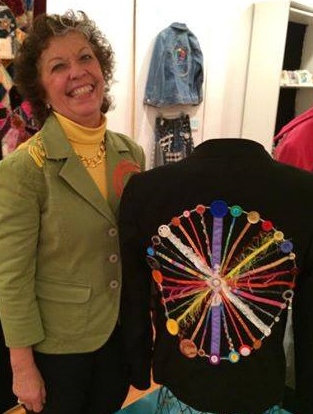It’s especially difficult for creative, highly sensitive, and/or gifted people to think about getting counseling or psychotherapy.
 You might ask yourself, “Shouldn’t I be able to solve my own problems?” You’re likely used to solving your own problems and also being the go-to person for everyone around us. You may also wonder, “Is my problem too small to bother [someone else] with?” Sometimes you may feel overwhelmed by the enormity or complexity of your problems and find yourself asking if it is too big—“Is there help or hope for it? For me?” Or you may feel embarrassed, even ashamed that you haven’t been able to handle this, figure this out by yourself. You may also question, “What happens in counseling?” Finally, you may be hesitant and silently ask,” How can I know that counseling will help me and not hurt me?” I’d like to address some of these questions here. Feel free to call or email any other questions or comments you may have, so I may answer your specific concerns.
You might ask yourself, “Shouldn’t I be able to solve my own problems?” You’re likely used to solving your own problems and also being the go-to person for everyone around us. You may also wonder, “Is my problem too small to bother [someone else] with?” Sometimes you may feel overwhelmed by the enormity or complexity of your problems and find yourself asking if it is too big—“Is there help or hope for it? For me?” Or you may feel embarrassed, even ashamed that you haven’t been able to handle this, figure this out by yourself. You may also question, “What happens in counseling?” Finally, you may be hesitant and silently ask,” How can I know that counseling will help me and not hurt me?” I’d like to address some of these questions here. Feel free to call or email any other questions or comments you may have, so I may answer your specific concerns.
Shouldn’t I be able to solve my own problems?
As a CASIGY™, you are likely to try to solve your problems by talking with your family or friends, seeking the advice  of your clergy or health care provider, and especially by reading or taking classes. Creative, highly sensitive and gifted people are typically expert researchers. It’s often not a lack of information that hinders you. You may consider going to a counselor when your problems are not getting better by doing the things you have learned to do, or when you try but can’t do them, or can’t do them consistently. Other times you might decide to ask for help if you are too embarrassed to discuss your problems with your family or friends, or don’t want to burden them. It may also be that relationships at work or with your family members or significant others are not working. You may be in a crisis, and cannot identify the source of the trouble, or a way out, and you feel the need of a guide, somewhat like needing a guide when lost in mountainous territory.
of your clergy or health care provider, and especially by reading or taking classes. Creative, highly sensitive and gifted people are typically expert researchers. It’s often not a lack of information that hinders you. You may consider going to a counselor when your problems are not getting better by doing the things you have learned to do, or when you try but can’t do them, or can’t do them consistently. Other times you might decide to ask for help if you are too embarrassed to discuss your problems with your family or friends, or don’t want to burden them. It may also be that relationships at work or with your family members or significant others are not working. You may be in a crisis, and cannot identify the source of the trouble, or a way out, and you feel the need of a guide, somewhat like needing a guide when lost in mountainous territory.
 of your clergy or health care provider, and especially by reading or taking classes. Creative, highly sensitive and gifted people are typically expert researchers. It’s often not a lack of information that hinders you. You may consider going to a counselor when your problems are not getting better by doing the things you have learned to do, or when you try but can’t do them, or can’t do them consistently. Other times you might decide to ask for help if you are too embarrassed to discuss your problems with your family or friends, or don’t want to burden them. It may also be that relationships at work or with your family members or significant others are not working. You may be in a crisis, and cannot identify the source of the trouble, or a way out, and you feel the need of a guide, somewhat like needing a guide when lost in mountainous territory.
of your clergy or health care provider, and especially by reading or taking classes. Creative, highly sensitive and gifted people are typically expert researchers. It’s often not a lack of information that hinders you. You may consider going to a counselor when your problems are not getting better by doing the things you have learned to do, or when you try but can’t do them, or can’t do them consistently. Other times you might decide to ask for help if you are too embarrassed to discuss your problems with your family or friends, or don’t want to burden them. It may also be that relationships at work or with your family members or significant others are not working. You may be in a crisis, and cannot identify the source of the trouble, or a way out, and you feel the need of a guide, somewhat like needing a guide when lost in mountainous territory.
Are there other times to consider counseling or psychotherapy?
 The most frequent reason highly sensitive, gifted and creative people seek counseling is for concerns related to their sensitivity. Others may tell you that you are over reacting; you may frequently feel emotionally hurt in interactions with others. You may have difficulty coping with health problems. You may seek counseling when you have difficulty managing extreme stress or have a child with behavior problems. Another common time creative, sensitive, gifted people decide to seek counseling is when you are having problems with sleeping or eating, or when you are feeling depressed or anxious much of the time. You may call a counselor when you have experienced overwhelming losses, changes, or are in the midst of life transitions or crises. You may also seek help when you feel stuck, joyless, empty or numb much of the time.
The most frequent reason highly sensitive, gifted and creative people seek counseling is for concerns related to their sensitivity. Others may tell you that you are over reacting; you may frequently feel emotionally hurt in interactions with others. You may have difficulty coping with health problems. You may seek counseling when you have difficulty managing extreme stress or have a child with behavior problems. Another common time creative, sensitive, gifted people decide to seek counseling is when you are having problems with sleeping or eating, or when you are feeling depressed or anxious much of the time. You may call a counselor when you have experienced overwhelming losses, changes, or are in the midst of life transitions or crises. You may also seek help when you feel stuck, joyless, empty or numb much of the time.
What is it really like?
You’ve likely watched movies or TV shows, or heard from others about their experiences in counseling. There’s the good, the bad, and the horrible. But what is it really like? Each therapist has their own unique style or relating and way of working with people. As a fellow CASIGY™, I have a gentle, somewhat informal style of relating, and a flexible process that operates within a framework that’s invisible to you, but that guides me in my work with you.
Some of that guiding framework includes —
-
Presence
—I’m here as a trained and licensed professional, a caring, objective person to be with you, to be a witness to your experience, and accompany you on your way. I am here not as a friend with equal and similar input into the relationship we build, but I am a professional, with specific information, training and experience that enables me to provide you with the help you are seeking. I am responsible for keeping myself up to date, informed, strong and healthy so that I can be there when you need me to be, to be emotionally available, mentally alert and astute, and to inform you of the limits on my availability.
your experience, and accompany you on your way. I am here not as a friend with equal and similar input into the relationship we build, but I am a professional, with specific information, training and experience that enables me to provide you with the help you are seeking. I am responsible for keeping myself up to date, informed, strong and healthy so that I can be there when you need me to be, to be emotionally available, mentally alert and astute, and to inform you of the limits on my availability. -
Protection
—I provide a safe place to bring your concerns and feelings, to speak the unspeakable things in your life. The physical space we meet in is free of intrusions, noise, and is physically safe. The furnishings and decorations create a physical ambiance that supports the physical and emotional security that you need. The protection extends to the psychic space and the emotional atmosphere that I create that enables the deep emotional work to take place.
physical space we meet in is free of intrusions, noise, and is physically safe. The furnishings and decorations create a physical ambiance that supports the physical and emotional security that you need. The protection extends to the psychic space and the emotional atmosphere that I create that enables the deep emotional work to take place. -
Permission
—I give you permission to feel, to think, to speak, to do, to (really) see and hear, to be who you are meant to be, not who others want you to be. I also give you permission to discover who that is. -
Power
—You have support here to face whatever hard things are in your path, and help to learn to activate your own strength. -
Possibilities
—Here you will find options when you were afraid there were none, and tools to help you cope, heal and learn how to thrive as a CASIGY™.
-
Pathways
—When you feel stuck and cannot find a way out of the tough place in which you find yourself, You’ll get help to discover new pathways, as well as tools to manage your stress, your emotions, and your lives, and training in how to use them. I have found that when CASIGYs overcome the stigma of this label, the stigma of “having problems” and your reluctance to begin this process, and take the plunge of coming in to my office, you usually experience a sense of relief and comfort in the simple act of sharing your dilemmas with a caring, skilled, unbiased listener who understands you.
discover new pathways, as well as tools to manage your stress, your emotions, and your lives, and training in how to use them. I have found that when CASIGYs overcome the stigma of this label, the stigma of “having problems” and your reluctance to begin this process, and take the plunge of coming in to my office, you usually experience a sense of relief and comfort in the simple act of sharing your dilemmas with a caring, skilled, unbiased listener who understands you.
But will counseling really help me?
 Most of us feel better after counseling than we did before, according to recent research by Consumer Reports™. Feedback from my previous clients tells me that in counseling, you will understand and accept yourself and others better; and your relationships become better. You find ways to turn tragedy into triumph; to heal your past and transform your pain. You make changes that improve your life. You feel and truly are more in charge of your life. You find that it was worth the risk and the effort, and you will be glad you stepped out to get help when you needed it. Many people tell me that the one regret they have is that they did not have the courage or the ‘whatever’ to start counseling sooner than they did.
Most of us feel better after counseling than we did before, according to recent research by Consumer Reports™. Feedback from my previous clients tells me that in counseling, you will understand and accept yourself and others better; and your relationships become better. You find ways to turn tragedy into triumph; to heal your past and transform your pain. You make changes that improve your life. You feel and truly are more in charge of your life. You find that it was worth the risk and the effort, and you will be glad you stepped out to get help when you needed it. Many people tell me that the one regret they have is that they did not have the courage or the ‘whatever’ to start counseling sooner than they did.
What can assure me of a good outcome?
For most of us CASIGYs™, several elements are important to a successful counseling experience. One is the hope or belief that it will help. Your readiness to make changes is also a significant factor. The most crucial consideration is usually the relationship between the counselor and client. So, it is important to find a counselor that’s right for you.
How can I find a good counselor--one that's good with me or my loved one as a sensitive and/or gifted person?
There are several things to think about. These can include location, accessibility, specialty, and financial  arrangements. For a CASIGY™, it can be crucial to work with someone who understands your unique combination of characteristics such as creativity, curiosity, complexity, acute awareness, super-sensitivity, intensity, introversion, intelligence and/or giftedness. It can be imperative to find someone who can honor your strengths and assets as well as your vulnerabilities. Compatibility of values, styles of working, and especially a sense of trust and comfort are especially important. It may take a few phone calls and meeting with one or more counselors to find a good match–someone you can partner with to guide you on your inner journey.
arrangements. For a CASIGY™, it can be crucial to work with someone who understands your unique combination of characteristics such as creativity, curiosity, complexity, acute awareness, super-sensitivity, intensity, introversion, intelligence and/or giftedness. It can be imperative to find someone who can honor your strengths and assets as well as your vulnerabilities. Compatibility of values, styles of working, and especially a sense of trust and comfort are especially important. It may take a few phone calls and meeting with one or more counselors to find a good match–someone you can partner with to guide you on your inner journey.
 arrangements. For a CASIGY™, it can be crucial to work with someone who understands your unique combination of characteristics such as creativity, curiosity, complexity, acute awareness, super-sensitivity, intensity, introversion, intelligence and/or giftedness. It can be imperative to find someone who can honor your strengths and assets as well as your vulnerabilities. Compatibility of values, styles of working, and especially a sense of trust and comfort are especially important. It may take a few phone calls and meeting with one or more counselors to find a good match–someone you can partner with to guide you on your inner journey.
arrangements. For a CASIGY™, it can be crucial to work with someone who understands your unique combination of characteristics such as creativity, curiosity, complexity, acute awareness, super-sensitivity, intensity, introversion, intelligence and/or giftedness. It can be imperative to find someone who can honor your strengths and assets as well as your vulnerabilities. Compatibility of values, styles of working, and especially a sense of trust and comfort are especially important. It may take a few phone calls and meeting with one or more counselors to find a good match–someone you can partner with to guide you on your inner journey.
My final question is for you, my reader. How can I be of assistance to you?
Please call or email me with your questions and concerns. You can also call me if you prefer, at 303-987-0346. Are you ready to connect more directly? I offer a 20 minute free phone or web consultation.
If I can help in any way, please don’t hesitate to schedule a phone call or leave your details and I’ll get back to you right away.

